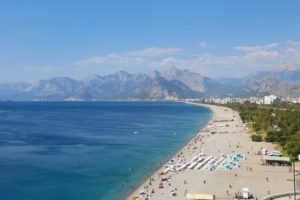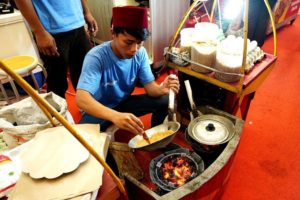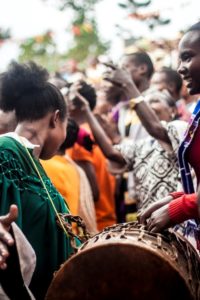Eid Al-Fitr Celebrations Across the Globe: From Bangladesh to Iceland
Eid al-Fitr, also known as the "Festival of Breaking the Fast," is a significant event in the Islamic calendar that marks the end of Ramadan. During Ramadan, Muslims worldwide fast from sunrise to sunset, making Eid al-Fitr a time for feasting, gift-giving, family, community, and reflection. Although the holiday is celebrated similarly in many regions, some unique customs and traditions vary from place to place. Let us take a journey worldwide to learn about the diversity and richness of this special holiday.
Bangladesh

In Bangladesh, Eid al-Fitr is celebrated with great enthusiasm, eagerness, and food. Food preparation for Eid starts several days in advance. It features a variety of delicacies such as spicy biryani, succulent kababs, and sweet treats like shemai, kaalo jam, payesh, and doi.
On the night before Eid al-Fitr, locals search for the new moon to signal the start of Eid and the new month of Shawwal. If the moon is spotted, people gather to celebrate Chaand Raat, a night of festivities and joy. Women and girls adorn their hands and feet with intricate henna designs known as mehndi while children engage in various games and activities.
Turkey

During Eid al-Fitr in Turkey, many families take advantage of the public holiday to explore various provinces and enjoy the warm, sunny weather. Turkey has many beautiful beaches and coastal areas that attract people from all over the country during the holiday.
Muslims make up almost 98% of Turkey's population, so during Eid al-Fitr, these sandy coasts become a hub of activity, with families enjoying fishing, swimming, and other fun-filled activities. Some people also take this opportunity to travel to historical sites and monuments to learn about Turkey's rich culture and history.
Overall, Eid al-Fitr is a time for families in Turkey to come together and create lasting memories while exploring all that their country has to offer.
Iceland

The celebration of Eid al-Fitr in Iceland is unique, given that the growing Muslim community remains a minority. Muslims in Iceland observe the dusk-to-dawn fast during Ramadan leading up to Eid al-Fitr. However, in peak summer, the sun remains visible in the sky for longer, setting at midnight and rising again just two hours later. As a result, Muslims in Iceland fast up to 22 hours a day, making it a significant challenge.
Islamic scholars have offered alternative solutions, including breaking the fast based on the timings of sunrise and sunset from the nearest country or observing Saudi Arabia's time zone.
Indonesia

Indonesia is the country with the largest Muslim population in the world, with over 225 million Muslims. Therefore, it's no surprise that Eid al-Fitr, known locally as Lebaran, is widely celebrated and recognized as a public holiday in the country.
The festivities are marked by prayers, followed by a variety of traditional dishes, sweets, and snacks, which are often shared with family, friends, and neighbors.
Before and after the Lebaran holiday, many Indonesian workers receive a collective holiday, known as "mudik" or homecoming, which allows them to travel and visit their loved ones. This results in one of the world's largest annual mass migrations, as millions of Indonesians return to their hometowns to celebrate the holiday with their families.
Kenya

Islam is the second-largest religion in Kenya, with approximately one-third of the population practicing it. The majority of Kenyan Muslims reside in the coastal cities of the East-African country, such as Mombasa. During the last ten days of Ramadan, which is known as "Kumi la mwisho" in Swahili, Muslims in Mombasa celebrate with great zeal and enthusiasm.
Street festivals and social gatherings are held throughout the city in the evenings after the daily fast is broken. People gather to socialize, exchange greetings, and enjoy the festive atmosphere. The streets are decorated with colorful lights and traditional ornaments, creating a vibrant ambiance.
In conclusion, Aal-Fitr is a time of celebration and joy for Muslims worldwide, with each country and culture having its unique way of commemorating the end of Ramadan. From the festive street festivals in Kenya to the sunny beaches of Turkey and the unique Icelandic way of observing the holiday, Eid al-Fitr brings people together and reinforces the importance of community and family.
Despite the differences in how it is celebrated, the core values of Eid al-Fitr remain the same: forgiveness, gratitude, and generosity. This holiday is a reminder that no matter where we come from or our beliefs, we all have something to celebrate and be thankful for.